.png)
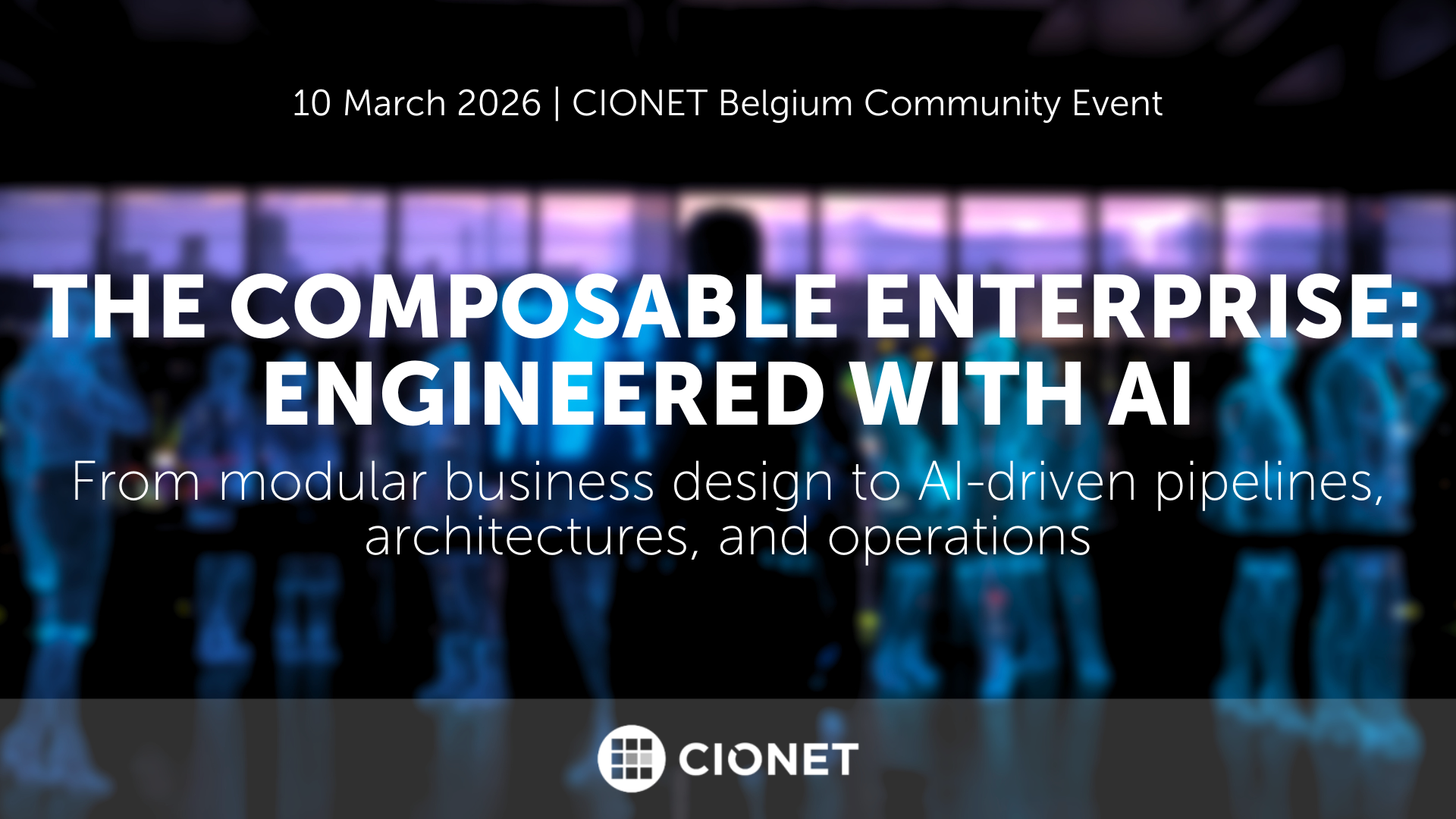
Belgium 10-3-26 All Members Physical english
From modular business design to AI-driven pipelines, architectures, and operationsA composable enterprise is built on modular processes, API-driven ecosystems, low-code platforms, and cloud-native services. It promises speed and adaptability by allowing organisations to reconfigure their capabilities as conditions change. However, modular design alone does not guarantee resilience; the way these systems are engineered and operated is just as important.This is where AI is beginning to make a difference. Beyond generating snippets of code, AI is already influencing how entire systems are developed and run: accelerating CI/CD pipelines, improving test coverage, optimising Infrastructure-as-Code, sharpening observability, and even shaping architectural decisions. These changes directly affect how quickly new business components can be deployed, connected, and retired.In this session, we will examine how CIOs can bring these two movements together:Composable design is the framework for flexibility and modularity.AI-augmented engineering is the force that delivers the speed, quality, and intelligence needed to sustain it.The pitfalls of treating them in isolation: composability that collapses under slow engineering cycles, or AI that only adds complexity without a modular structure.The discussion goes beyond concepts to practical implications: how to architect organisations that can be recomposed at speed, without losing control or reliability. The outcome is an enterprise that is not only modular in design but also engineered to adapt continuously under real-world conditions.
Read More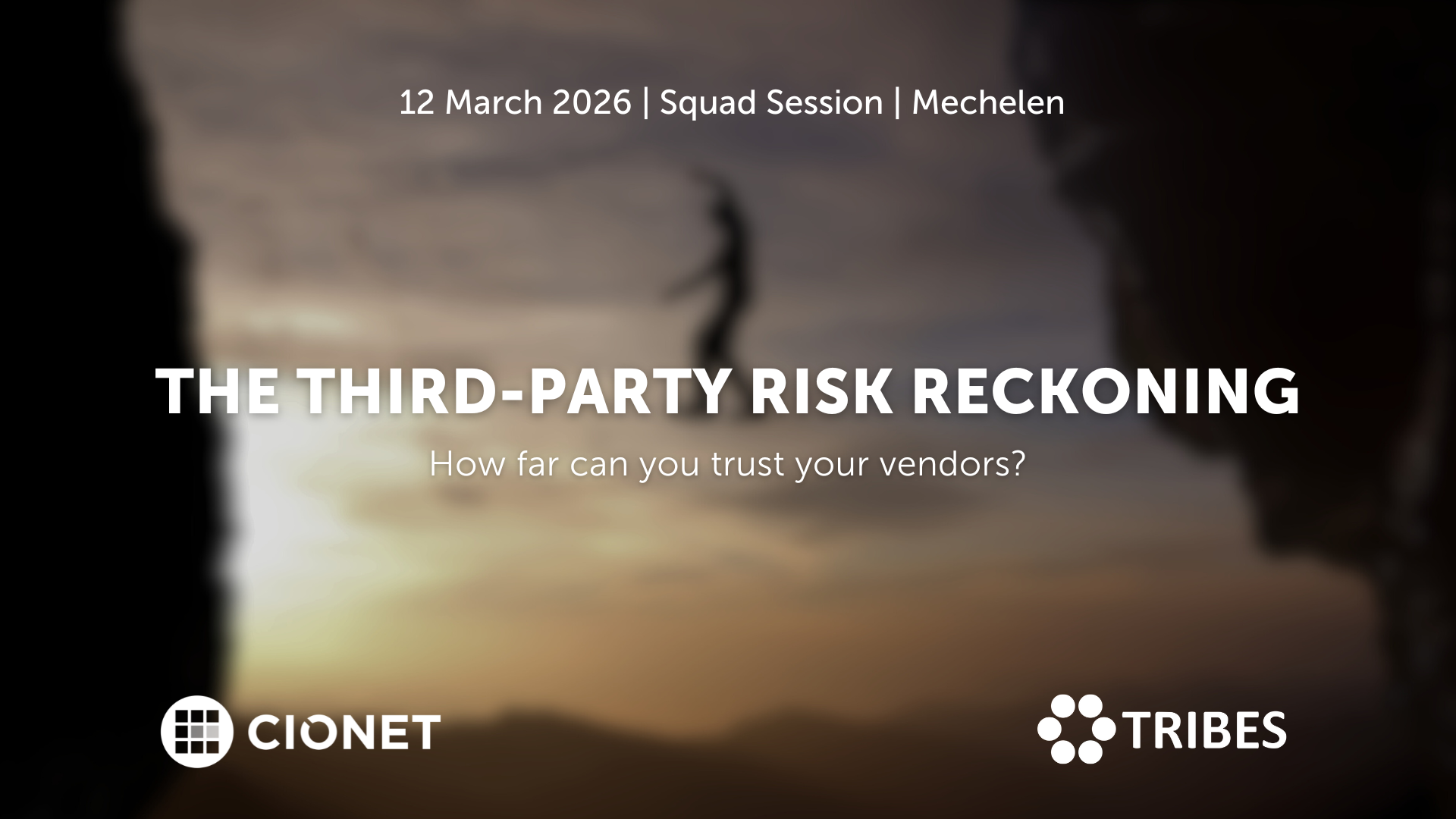
Belgium 12-3-26 Physical english
Tomato! Tomato! Tomato! Get your tomato now! Every vendor sells security. And every company depends on vendors, partners, and suppliers. The more digital the business becomes, the longer that list grows, and so does the attack surface. One weak link, and there is always one, or one missed update, and trust collapses faster than any firewall can react. What used to be a procurement checklist has become a full-time discipline. Questionnaires, audits, and endless documentation prove that everyone’s “compliant,” yet incidents keep happening. So it’s clear: the issue isn’t lack of policy, or maybe a bit, but mostly lack of visibility. Beyond a certain point, even the most secure organisation is only as safe as its least prepared partner (or an employee who hadn’t had their morning coffee). So how far can you trust your vendors? How do you check what you can’t control? And when does assurance become theatre instead of protection? Does it come at a different cost? Let’s exchange what works and what fails in third-party risk management: live monitoring, shared responsibility models, contractual levers, and the reality of building trust in a chain you don’t own. A closed conversation for those redefining what partnership means when risk is shared but accountability isn’t.
Read More.jpg)
Belgium 19-3-26 Country Members Physical french
Moins de Partenaires : La consolidation vaut-elle le risque ? Le problème est la prolifération des fournisseurs : trop d'outils causant de la complexité, une taxe d'intégration paralysante et de la redondance. La Taxe d'Intégration est le coût caché (en temps, en échecs et en ressources) d'essayer de faire fonctionner ensemble des systèmes disparates. Cet échange se concentre sur des stratégies éprouvées pour simplifier de manière agressive le parc technologique, consolider les fournisseurs et élever certains fournisseurs clés au rang de partenaires stratégiques.
Read More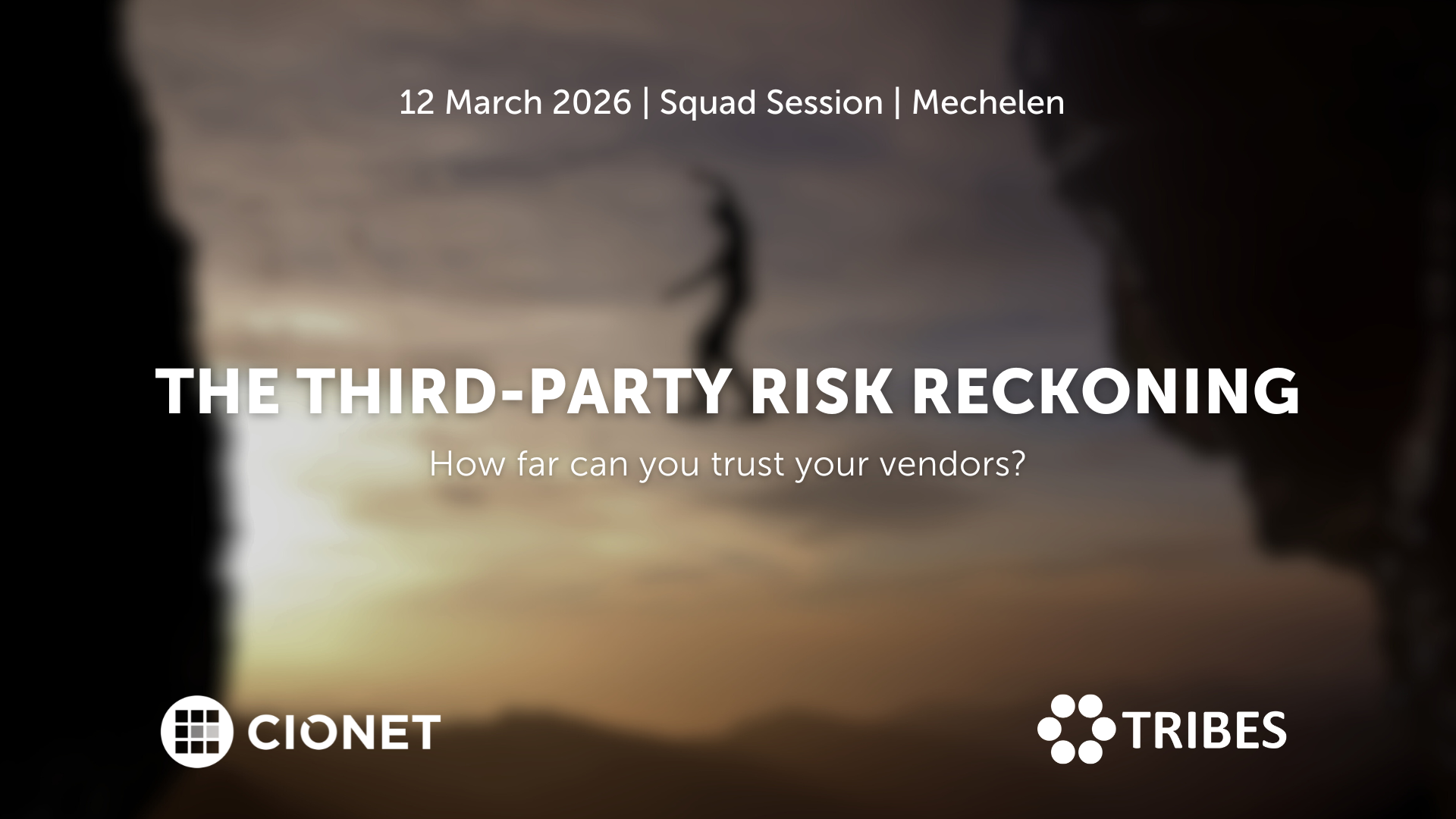
March 12, 2026 Squad Session Invitation Only Physical english
Tomato! Tomato! Tomato! Get your tomato now! Every vendor sells security. And every company depends on vendors, partners, and suppliers. The more digital the business becomes, the longer that list grows, and so does the attack surface. One weak link, and there is always one, or one missed update, and trust collapses faster than any firewall can react.
Read More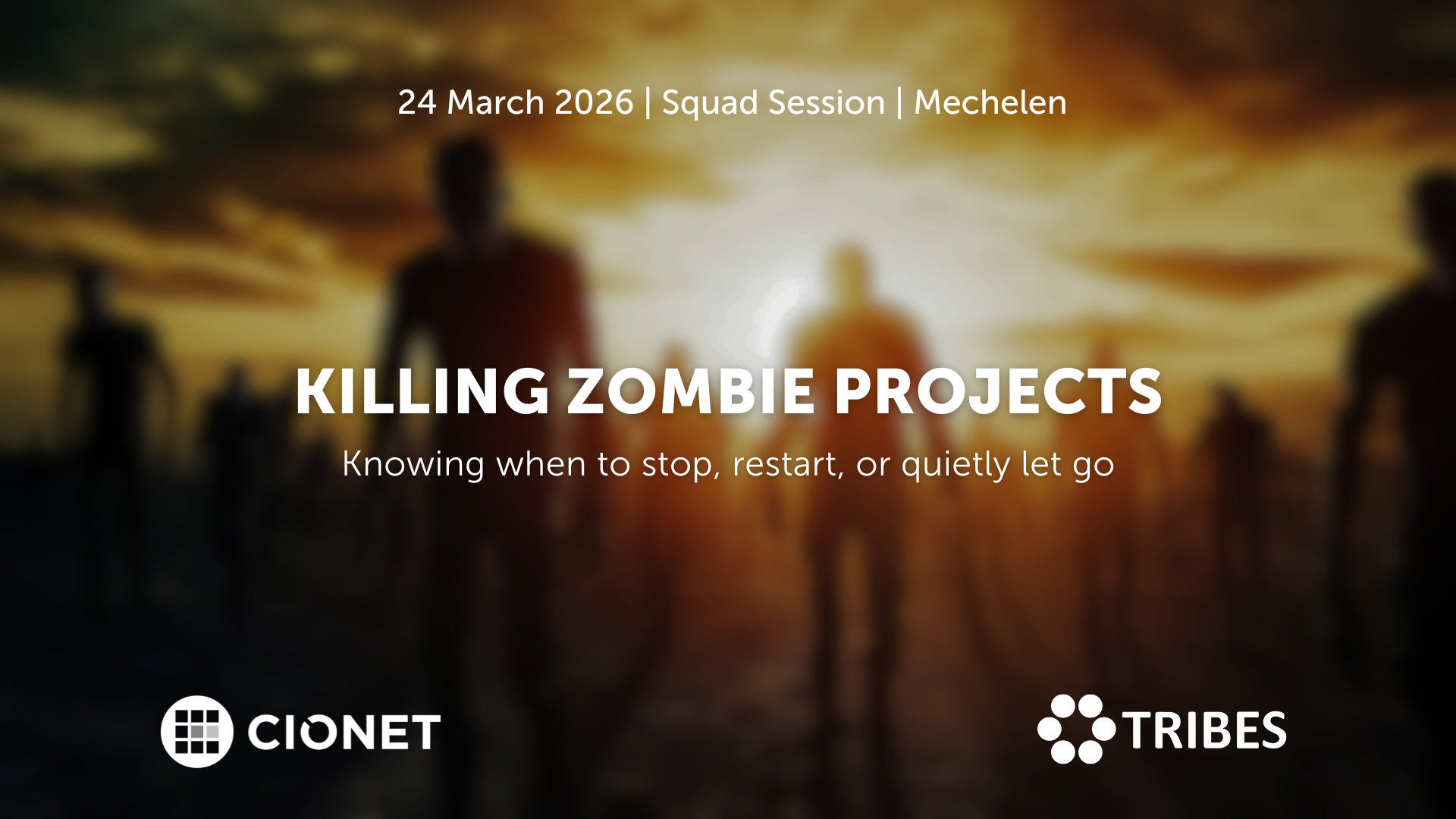
March 24, 2026 Squad Session Invitation Only Physical english
Every organisation has them, projects that keep running long after their purpose has faded. No one remembers who asked for them, but shutting them down feels riskier than keeping them alive. And eventually, people stay assigned, budgets stay allocated, and energy drains into work that no longer matters. Inertia at its finest.
Read More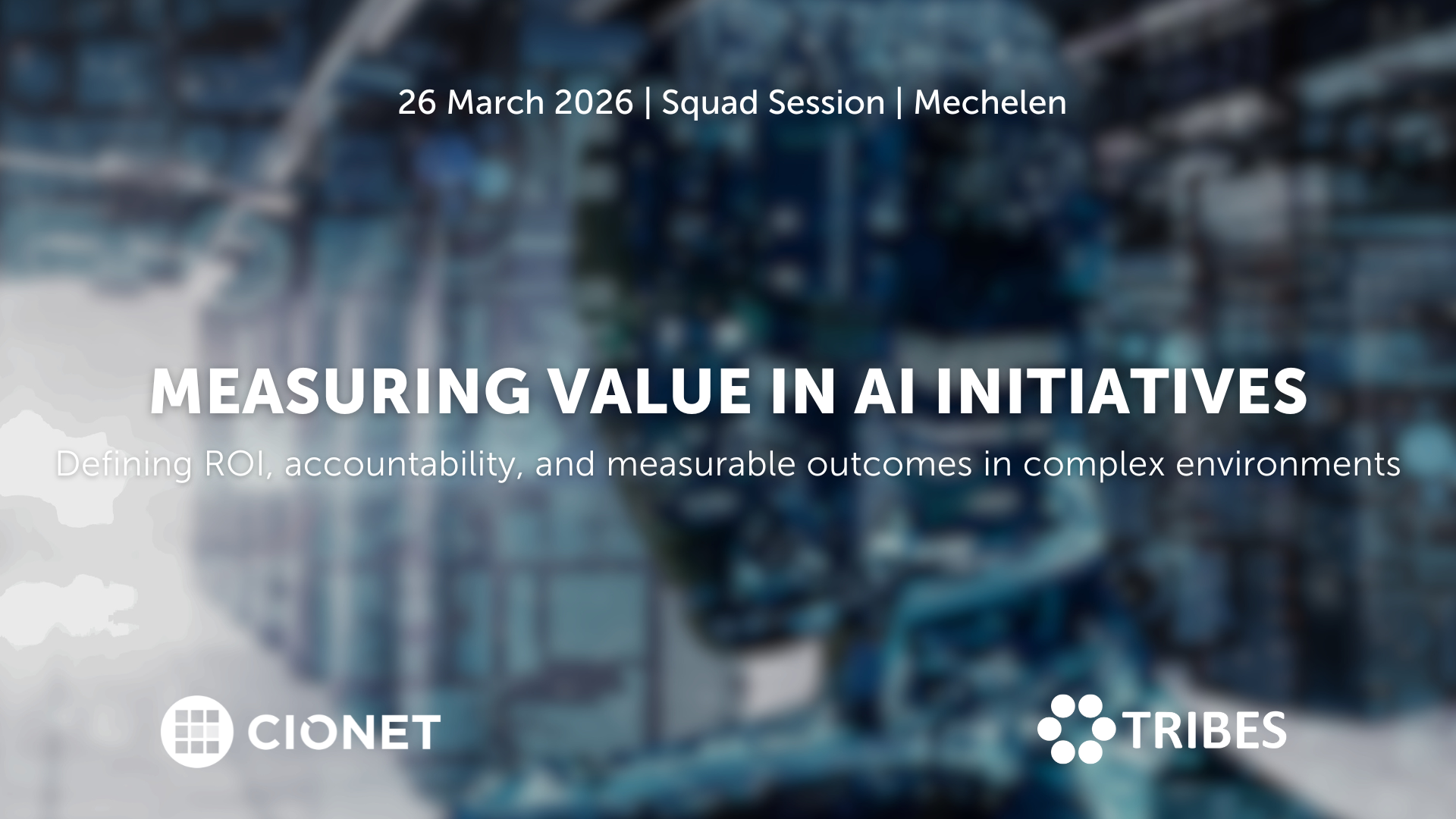
March 26, 2026 Squad Session Invitation Only Physical english
AI projects continue to multiply, but proving their value remains difficult. Most organisations can track activity, not impact. Dashboards count pilots and models, yet few translate to measurable business outcomes. The result is familiar: success stories without clarity on what they actually delivered.
Read More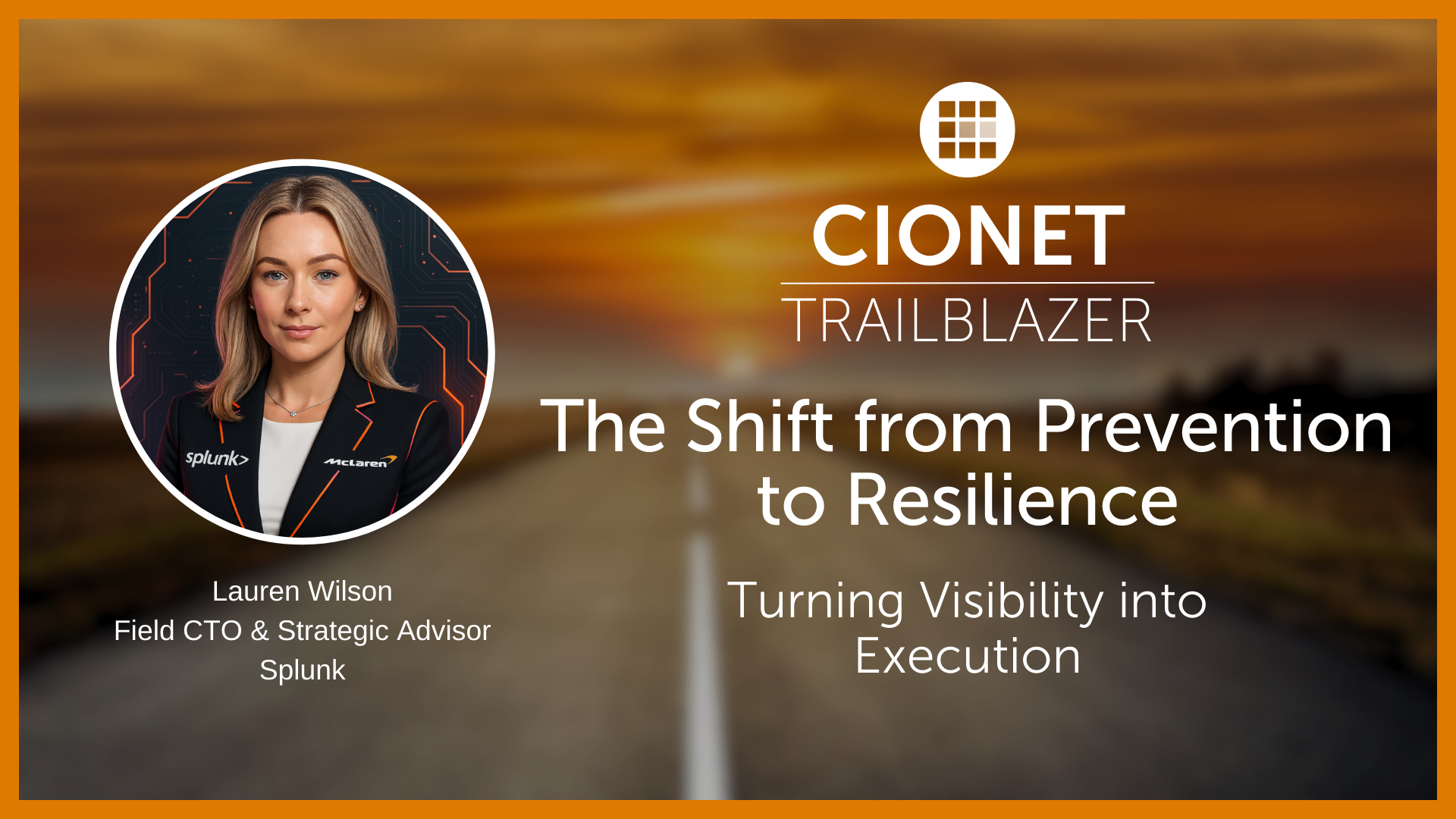
CIONET Trailblazer: CISO: The Shift from Prevention to Resilience: Turning Visibility into Execution
Published on: January 28, 2026 @ 9:48 AM
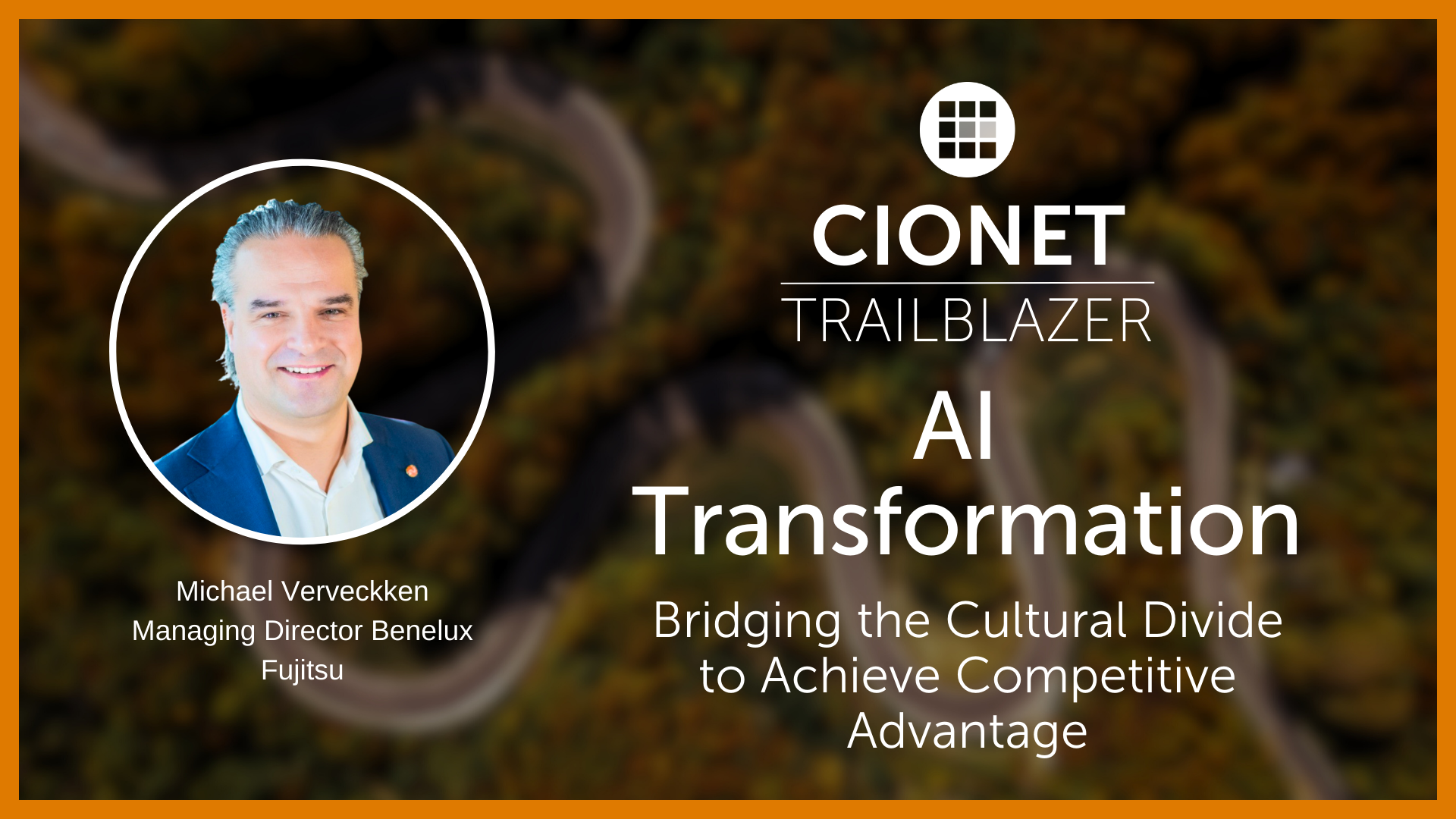
CIONET Trailblazer: AI Transformation: Bridging the Cultural Divide to Achieve Competitive Advantage
Published on: December 17, 2025 @ 9:16 AM
Tearing down silos to build better delivery of city services
The City of Helsinki and IBM Consulting co-create faster, more flexible customer experiences with a digital assistant network
The City of Helsinki takes care of its own. In fact, it offers its citizens hundreds of services—covering everything from healthcare to housing to infrastructure. Over 38,000 employees help provide those services, making the city the largest employer in the country.
Those services generate enormous quantities of data, continuously building upon an already vast store. “We’ve been utilizing many of our services for a very long time,” says Tomas Lehtinen, Head of Data for the City of Helsinki. “Some of our systems have data going back almost 30 years.”
In 2019, the city established a data strategy to start harnessing the potential of that data. “Our team wanted to enable data-driven decision-making,” says Lehtinen, “as well as to apply that data to optimizing the city’s operations and proactively responding to citizens’ service needs on their terms.”
At the time, each service organization had its own customer service team, and many dealt with high volumes of citizen requests. “Customer service personnel were overworked,” says Janne Kantsila, Leading Specialist, Automation Technologies for the City of Helsinki. “At the same time, we wanted to improve the customer experience. Our citizens expected faster service and more flexible service hours. They didn’t want to be put in queues.”
To help address these issues, the city turned to virtual assistants—or “chatbots”—experimenting with various vendors’ solutions across several departments. Once the city had verified how virtual assistants could best serve its citizens, it developed a request for proposal (RFP) for a virtual assistant platform to support its long-term digitalization needs.
Chief among the platform requirements were natural language processing and the ability to connect to other systems—including those of Helsinki’s regional internal departments, other Finland cities and outside vendors—using APIs. The virtual assistants also linked to many other areas indirectly, such as the release of the virtual assistant training data on Helsinki Region Infoshare, an open web service established in 2011 over which major cities in the metropolitan area could exchange data. “By opening up our chatbot data, we could help other cities in Finland with their own chatbots, so they wouldn’t have to start from scratch,” says Kantsila.
Other required capabilities included the ability to connect to process automation via APIs and automated translations. Data privacy laws are stringent in the EU—and even more so in Finland, where transparency and trust are top priorities. The City of Helsinki wanted a solution that could run from a local Finland data center, when needed, to protect highly sensitive data, like social services and healthcare information.
IBM® offered the best overall solution for the city’s needs—and had a local Helsinki team that could help deliver it.
The ‘multi-chatbot’ is part of our long-term vision for chatbots. We want to tear down the silo walls that separate our organization, so they’re invisible to the user. ”
Once the RFP was finalized, the City of Helsinki and IBM Consulting™ worked together to design the virtual assistant implementation using IBM watsonx Assistant, initially running on IBM Cloud®.
The first virtual assistant the team undertook was for the city’s Sporting and Outdoor department. “We specified the chatbot scope and designed the user experience—for things like tone of voice and how to fit the chatbot within our chat application on the web pages,” says Kantsila. “Then we began gathering the necessary chatbot training model for things like intents and answers to questions.”
In co-creating the training model with the city, IBM Consulting applied elements of the IBM Garage™ methodology, a proven development framework that integrates people, processes and technology to transform business and culture. “We didn’t have chat logs from customer service available,” says Kantsila, “so we ran mini-workshops with customer service personnel to get their input on citizens’ most common inquiries.”
The team began work on the digital assistant in December 2020 and launched it in early March of 2021—less than three months from the start date. Following publication, the team continued to monitor and refine the virtual assistant training and intent models based on actual customer questions.
Next up was the maternal advisory virtual assistant, which served expectant and new mothers. The department had an existing virtual assistant, but it was structured differently from the IBM watsonx Assistant virtual assistant, and the team had to redesign the intent model and do significant dialog building from the ground up. “Users were quite happy to see that there was a continuation of the chatbot,” says Kantsila.
The team then built an internal IT virtual assistant for employees that incorporated IBM Watson Discovery. When the virtual assistant cannot answer a question, the solution searches through an enormous instruction library for relevant documents to help.
Following the IT virtual assistant, the team developed a rental housing services virtual assistant, a financial services virtual assistant to help with billing and other finance-related inquiries and an International House Helsinki virtual assistant to help immigrants and new international employees settle in the Helsinki capital region.
Our employees are learning how to use different kinds of data and AI-based systems. Sometimes they’re afraid that a new system like AI is going to take their jobs. But now they are seeing that it’s supporting them and giving them more time to devote to helping patients and other citizens. ”
Currently, the City of Helsinki is running 10 virtual assistants, including a “multi-chatbot” that combines virtual assistants from several healthcare and social services organizations into one. Typically, the virtual assistants handle up to 300 customer contacts per day and can handle most inquiries from start to finish. The “multi-chatbot” takes advantage of IBM Watson Language Translator to translate skills training services, which are in Finnish, into Swedish and English, the other two predominant languages in Finland.
“The ‘multi-chatbot’ is part of our long-term vision for chatbots,” says Kantsila. “We want to tear down the silo walls that separate our organization, so they’re invisible to the user. Ultimately, we want to provide self-service features with our chatbots, enabling citizens to take action, Such cases could include changing an invoice due date or canceling an appointment.”
Innovation is top of mind in developing new virtual assistants. “We don’t just want to automate existing processes,” says Kantsila, “but rather think of new processes that can deliver services to citizens proactively, more efficiently and in a more user-friendly way.”
Employees are also starting to embrace the new technologies. “Our employees are learning how to use different kinds of data and AI-based systems,” says Lehtinen. “Sometimes they’re afraid that a new system like AI is going to take their jobs. But now they are seeing that it’s supporting them and giving them more time to devote to helping patients and other citizens.”
The City of Helsinki team continues to meet weekly with a local IBM team to plan and develop new virtual assistants and capabilities. “It really helps that the IBM team is open-minded and solution oriented,” says Kantsila. “Now that we have the foundations in place, we want to develop our existing chatbots further to gain even greater value. With IBM, we can throw around a lot of crazy-seeming ideas and openly discuss and refine them. I think because of that, we are moving into an even more exciting phase.”

The City of Helsinki is a government entity that provides a large number of services for its 650,000 citizens. Those services cover a wide range of areas, from healthcare to education to land use. With approximately 38,000 employees, the city is Finland’s largest employer
639 Views 0 Likes Read More

Digital Transformation is redefining the future of health care and health delivery. All stakeholders are convinced that these innovations will create value for patients, healthcare practitioners, hospitals, and governments along the patient pathway. The benefits are starting from prevention and awareness to diagnosis, treatment, short- and long-term follow-up, and ultimately survival. But how do you make sure that your working towards an architecturally sound, secure and interoperable health IT ecosystem for your hospital and avoid implementing a hodgepodge of spot solutions? How does your IT department work together with the other stakeholders, such as the doctors and other healthcare practitioners, Life Sciences companies, Tech companies, regulators and your internal governance and administrative bodies?
Read More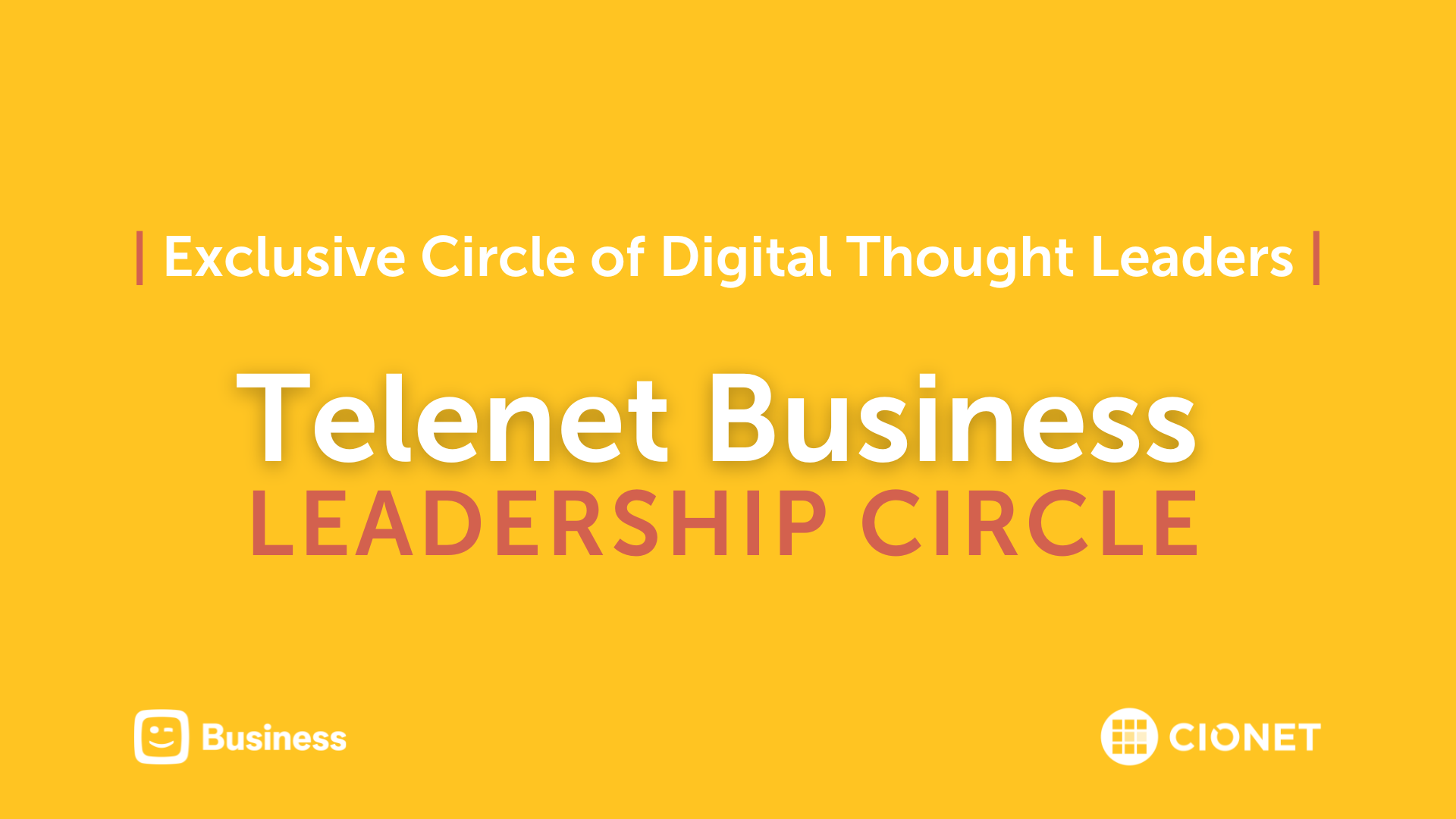
The Telenet Business Leadership Circle powered by CIONET, offers a platform where IT executives and thought leaders can meet to inspire each other and share best practices. We want to be a facilitator who helps you optimise the performance of your IT function and your business by embracing the endless opportunities that digital change brings.
Read More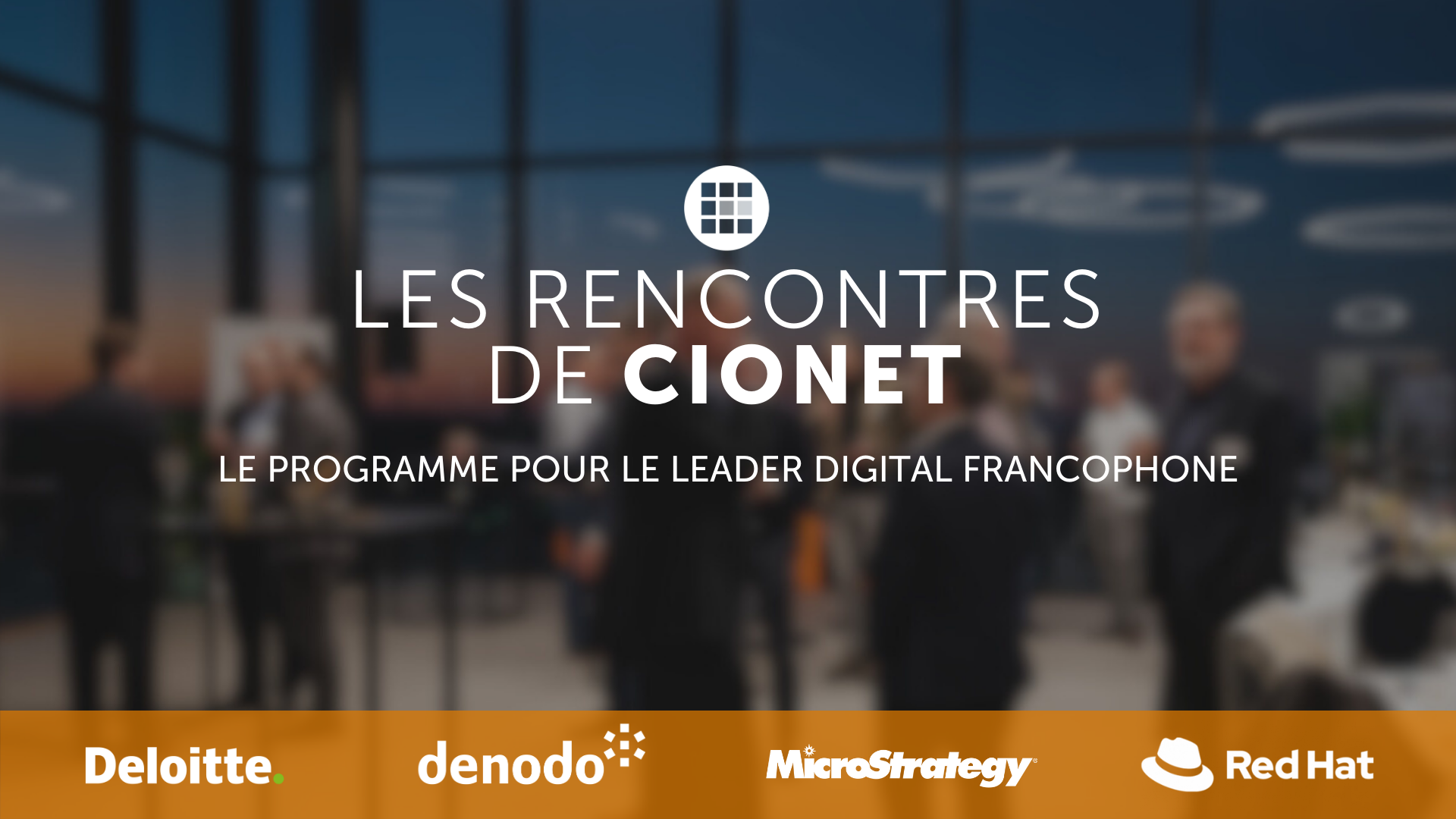
Découvrez la dynamique du leadership numérique aux Rencontres de CIONET, le programme francophone exclusif de CIONET pour les leaders numériques en Belgique, rendu possible grâce au soutien et à l'engagement de nos partenaires de programme : Deloitte, Denodo et Red Hat. Rejoignez trois événements inspirants par an à Liège, Namur et en Brabant Wallon, où des CIOs et des experts numériques francophones de premier plan partagent leurs perspectives et expériences sur des thèmes d'affaires et de IT actuels. Laissez-vous inspirer et apprenez des meilleurs du secteur lors de sessions captivantes conçues spécialement pour soutenir et enrichir votre rôle en tant que CIO pair. Ne manquez pas cette opportunité de faire partie d'un réseau exceptionnel d'innovateurs numériques !
Read More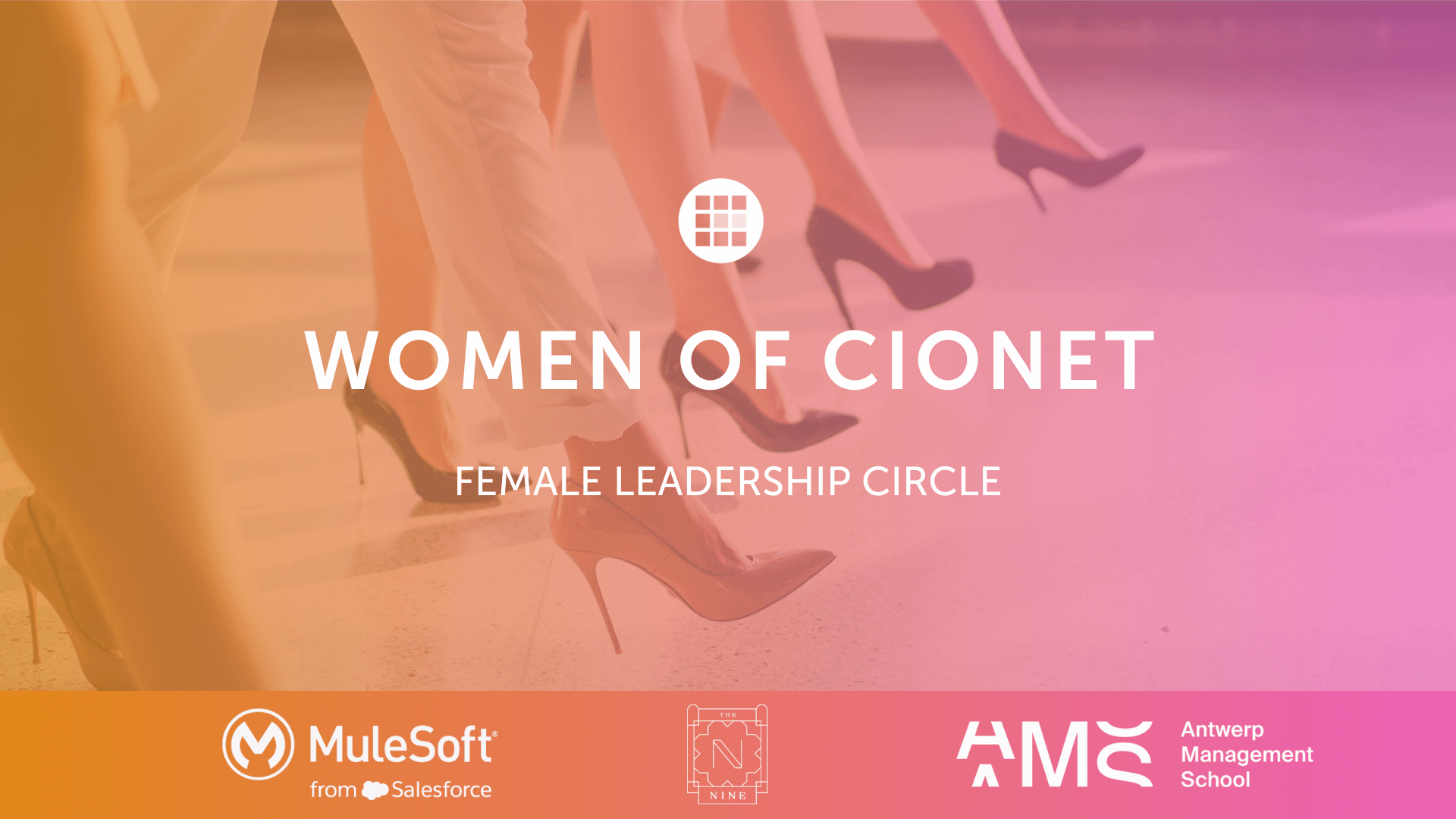
CIONET is committed to highlighting and celebrating female role models in IT, Tech & Digital, creating a leadership programme that empowers and elevates women within the tech industry. This initiative is dedicated to showcasing the achievements and successes of leading women, fostering an environment where female role models are recognised, and their contributions can ignite progress and inspire the next generation of women in IT. Our mission is to shine the spotlight a little brighter on female role models in IT, Tech & Digital, and to empower each other through this inner network community.
Read More


-Apr-01-2022-10-58-34-57-AM.png)









-Dec-13-2023-10-53-15-5032-AM.png)



-Jun-12-2023-01-23-11-7540-PM.png)




-Apr-01-2022-10-58-34-68-AM.png)








.png)









-Sep-01-2022-02-47-55-60-PM.png)
-Nov-22-2023-08-56-42-6802-AM.png)
.png)

Would you like to know more about CIONET Belgium, membership or partnership opportunities? Do you have feedback or any other question? Send us a message!
You can either send us a registered handwritten letter explaining why you'd like to become a member or you can simply talk to us right here!